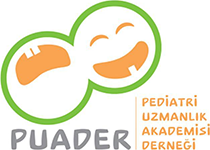Rare gastrointestinal perforations in the neonatal period: Meckel diverticula and acute appendicitis; Two case reports
Ezgi Yangın Ergon1 , Rüya Colak1
, Rüya Colak1 , Ferit Kulalı1
, Ferit Kulalı1 , Senem Alkan Özdemir1
, Senem Alkan Özdemir1 , Meral Yıldız1
, Meral Yıldız1 , Aytaç Karkıner2
, Aytaç Karkıner2 , Malik Ergin3
, Malik Ergin3 , Tülin Gökmen Yıldırım1
, Tülin Gökmen Yıldırım1 , Şebnem Çalkavur1
, Şebnem Çalkavur1
1İzmir Dr Behçet Uz Children's Disease And Surgery Education Research Hospital, Neonatology, Izmır, Türkiye
2İzmir Dr Behçet Uz Children's Disease And Surgery Education Research Hospital, Pediatric Surgery, Izmir, Türkiye
3İzmir Dr Behçet Uz Children's Disease And Surgery Education Research Hospital, Pathology, Izmir, Türkiye
Keywords: Meckel's diverticulum, appendicitis, intestinal perforation, necrotizing enterocolitis, newborn
Abstract
Neonatal gastrointestinal perforation (GIP) is a pathology that can be observed in a highly heterogeneous group ranging from premature and low birth weight babies to healthy term babies. Here, we report two rare cases of GIP in the neonatal period with different pathologies. Our first case presented with spontaneous intestinal perforation in the first week of life is the perforated Meckel’s diverticulum. The second case presented with intestinal abscess and perforation is perforated appendicitis. Although there are similar risk factors in the etiology, the GIP pathologies in the neonatal period are very different from each other and their common characteristics are that they present with intestinal perforation in the first weeks of life. The correct diagnosis before the operation is very challenging due to insufficient laboratory and imaging methods. Careful clinical observation and timely surgical intervention protects against morbidity and mortality due to perforation.
Cite this article as: Yangın Ergon E, Colak R, Kulalı F, Alkan Özdemir S, Yıldız M, Karkıner A, et al. Rare gastrointestinal perforations in the neonatal period: Meckel diverticula and acute appendicitis; Two case reports. Pediatr Acad Case Rep. 2023;2(2):39-43.
The parents’ of this patient consent was obtained for this study.
The authors declared no conflicts of interest with respect to authorship and/or publication of the article.
The authors received no financial support for the research and/or publication of this article.

